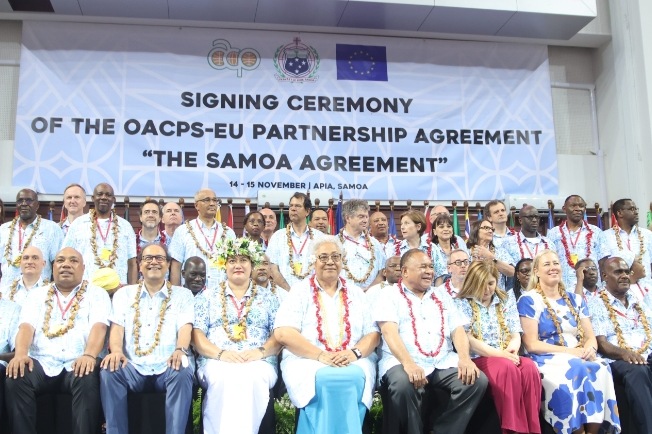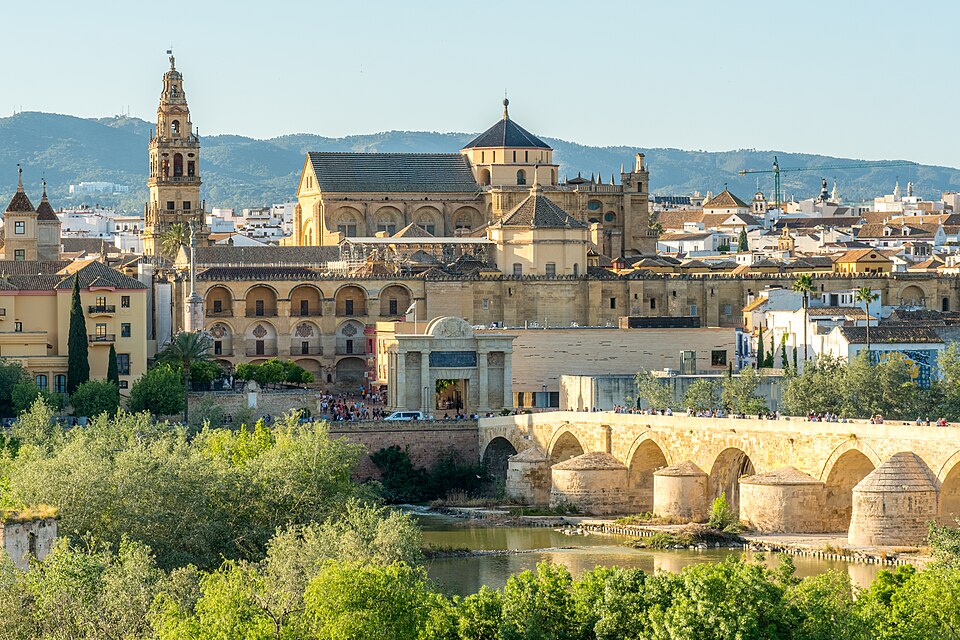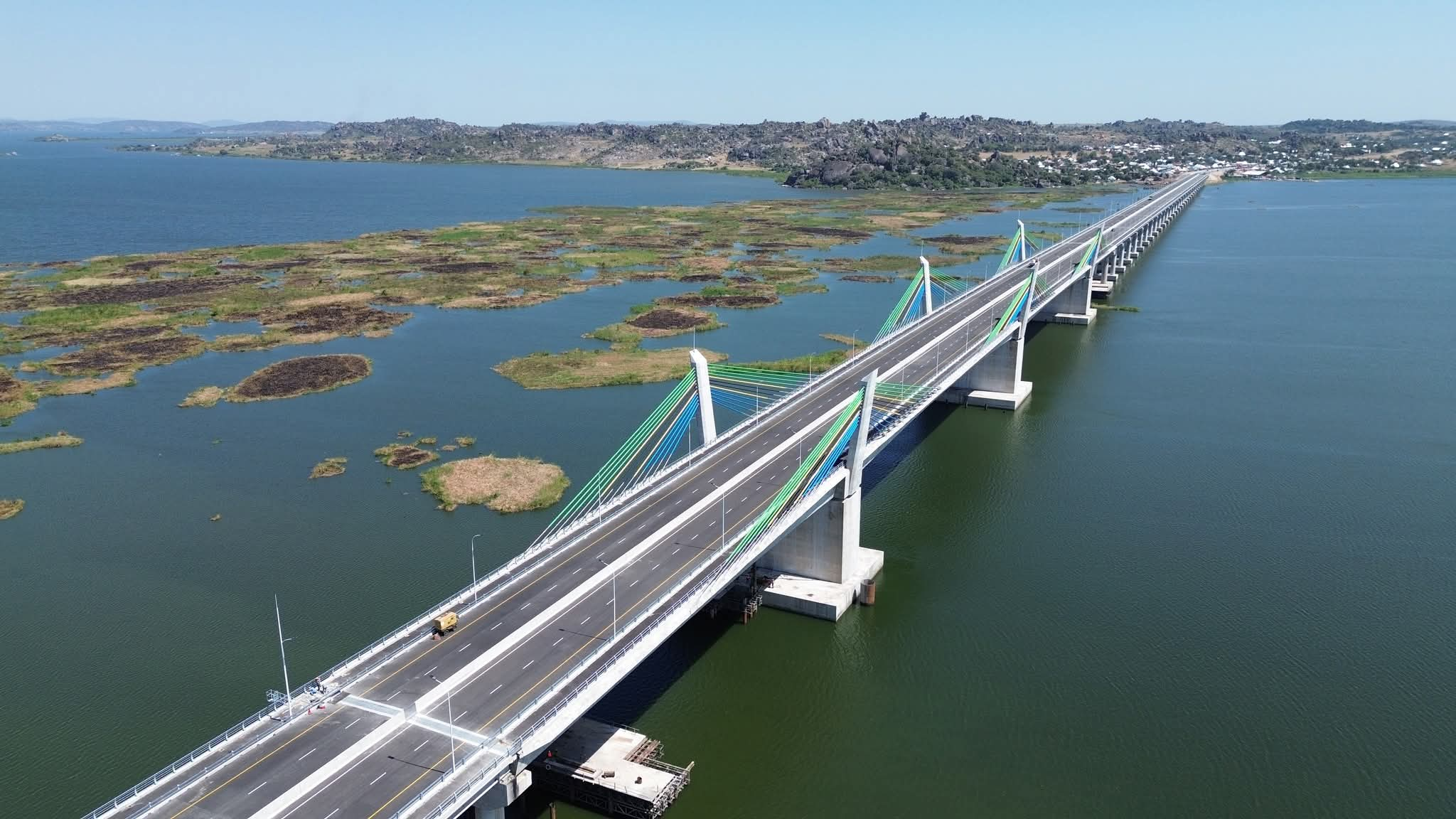SAMOA AGREEMENT: The EU-OACPS Partnership Dogged by Controversy

Did you know that Nigeria and 34 other African, Caribbean, and Pacific countries had initially refused to sign the Samoa Agreement on November 15, 2023, which will serve as the new legal framework for EU relations with 79 countries that includes 48 African, 16 Caribbean and 15 Pacific countries?
On 15 November 2023, the European Union (EU) and its Member States signed a new partnership agreement (referred to as the 'Samoa Agreement') with member states of the Organisation of African, Caribbean and Pacific States (OACPS). Negotiations on the agreement started in 2018 on the sidelines of the 73rd United Nations General Assembly. It was signed in Apia, Samoa, on November 15, 2018, by all 27 EU Member states and 47 of the 79 OACPS Member states.
The multiple negotiation levels, the coronavirus crisis and difficulties in reaching agreement on sensitive issues, such as migration management and sexual and reproductive health and rights, prevented the new agreement from being finalised by the initial expiry date set in the Cotonou Agreement, which is aimed at reducing and eventually eradicating poverty and contributing to the gradual integration of the ACP countries into the world economy based on three pillars of development cooperation, economic and trade cooperation, and political dimension.
It took more than two years of negotiations before the text of a renewed partnership agreement was initialled in April 2021, and two more years for the EU Member States to resolve dissenting views before signing. The future agreement will be provisionally applied from January 2024, and further legal procedures will be required before it can enter fully into force, notably ratification by at least two-thirds (53) of OACPS members.
The agreement has 103 articles comprising a common foundational compact and three regional protocols, namely: Africa-EU, Caribbean-EU, and Pacific-EU Regional Protocols with each regional protocol addressing the peculiar issues of the regions. The new partnership agreement will serve as the new legal framework for EU relations with 79 countries that includes 48 African, 16 Caribbean and 15 Pacific countries. Around 2 billion people are covered by the agreement.
The agreement aims to strengthen the capacity of the EU and the ACP countries to address global challenges together. It lays down common principles and covers the following six priority areas of democracy and human rights; sustainable economic growth and development; climate change; human and social development; peace and security; and migration and mobility.
The EU and the OACPS agreed on the principle of a common foundation complemented by three regional protocols (for African, Caribbean, and Pacific OACPS members respectively). The European Parliament succeeded in maintaining the ACP-EU Joint Parliamentary Assembly; three regional parliamentary assemblies will be created in the partnership's future institutional set-up.
However controversies have continued to dog the Samoa Agreement. According to the Federation of Catholic Family Associations in Europe (FAFCE) in an earlier response in January 2024, described the agreement as Europe's ideological neo-colonialism, when it said:
"The agreement has been formulated in such a way that, once ratified and entered into force, it automatically supersedes the respective national laws and imposes reproductive (abortion), non-discrimination and gender equality (LGBT) rights as enforceable rights to be enforced by laws in all countries.
"Nigeria, the most populous and certainly the most economically significant of the potential partners, was not present at the signing of the agreement and has no intention of signing it at the moment. Nigeria will soon be formally followed by the Kenya of the Catholic President William Ruto, which has already rejected the blackmail of Von der Leyen and Biden, who demanded that the new law on the protection of the natural family not be passed, denying LGBTI privileges.
"Catholic Archbishop Jason Gordon of Trinidad has in recent days lashed out against the arrangement, calling on the governments and peoples of the region to oppose it. His words have caused an outburst: the governments of Trinidad, Jamaica, Antigua, St. Lucia, St. Kitts, Bahamas, Grenada and Dominica have suspended all discussion and consideration of ratification.
"European development aid is not free, but is only provided as part of the overall package together with the gender agenda and abortion in national legislation. In fact, the EU is blackmailing African and Caribbean countries with such conditions. FAFCE oppose such ideological colonisation."
But as reported in the dailies, Nigeria signed the Agreement on Friday, June 28, 2024. This was done after extensive reviews and consultations by the Inter-ministerial Committee, convened by the Federal Ministry of Budget and Economic Planning (FMBEP) in collaboration with the Ministry of Foreign Affairs (MFA) and the Federal Ministry of Justice (FMOJ). It was scrutinised to ensure that none of the 103 Articles and Provisions of the Agreement contravenes the 1999 Constitution, as amended, or laws of Nigeria, and other extant Laws.
Defending the government action, the minister of budget and economic planning, Atiku Bagudu, through his spokesperson Bolaji Adebiyi said, “The documents signed by the Federal Government were strictly for the economic development of Nigeria; nowhere in the documents were LGBT or same-sex marriage mentioned even remotely, and it would be wrong for anyone to imply that Nigeria had accepted those tendencies. What Bagudu signed was about a $150 billion trade component."
However, there have been widespread calls for Nigeria to withdraw its signature from the Samoa Agreement that was named after the Pacific Island, Samoa, where it was signed on November 15, 2023. Nigeria and 34 other African, Caribbean, and Pacific countries had initially refused to sign the agreement. These countries include Benin, Senegal, Liberia, Botswana, Burundi, Jamaica, Mali, Rwanda, Tanzania, Uganda, Somalia, Namibia, Grenada, Eritrea, Malawi, Guinea-Bissau, Madagascar, Antigua and Barbuda, the Bahamas, the Central African Republic, Cuba, the Dominican Republic, Equatorial Guinea, Eswatini, Guyana, the Maldives, Mauritania, Nauru, Palau, Saint Lucia, Saint Kitts and Nevis, Tonga, Trinidad and Tobago, and Tuvalu.
SOURCES: Council of the European Union | The Cable | FAFCE
#penglobalcommunity #SamoaAgreement


_1755775186.jpg)
